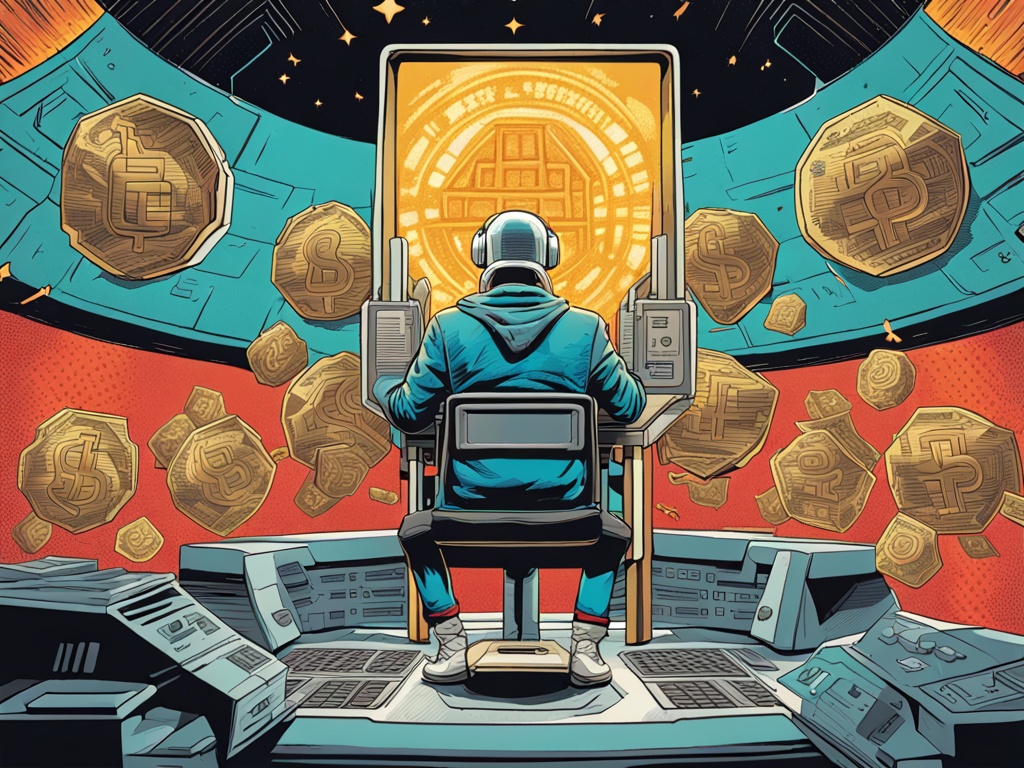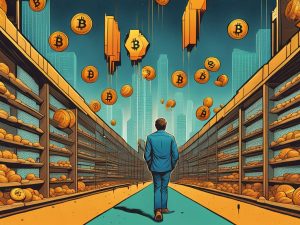The Ripple Effect: What Meta’s Withdrawal from Fact-Checking Means for Us
You know, it’s pretty wild how our world is driven by information, right? If you’ve ever found yourself scrolling through social media, trying to decipher what’s truth or just the latest myth, then you can relate to the impact of Meta’s recent announcement on its fact-checking program in the US. As a young Indian woman navigating the crypto market, I can’t help but draw parallels between the fragility of reliable information and the sensitivity of our beloved cryptocurrencies. Let’s chat about what this means and maybe put some practical perspectives into play here.
Key Takeaways:
- Meta’s Decision: Meta has decided to halt its fact-checking program in the US, raising concerns about the spread of misinformation.
- Impact on Media: This move especially affects media outlets heavily reliant on Meta for revenue, potentially compromising their ability to maintain journalistic standards.
- Pushback: Critics argue that this retreat may lead to a rise in misinformation online, significantly impacting public trust.
- Future of Fact-Checking: While some view this as an end, others believe it might allow fact-checkers to pursue more ambitious projects.
Let’s begin with the elephant in the room: Meta’s announcement. Meta, the parent company of Facebook, Instagram, and WhatsApp, has decided to cut the cord on its fact-checking program in the U.S. This move is a bombshell for anyone who relies on social media as an information source. You know, the outlets running fact-checking operations were already on a shaky foundation, especially with the noticeable shift in the public’s trust over the past few years.
Picture this: Media organizations like PolitiFact relied on partnerships with Meta not just to spread truth but also to keep their lights on. Some of these organizations were quite dependent on the funding they received for fact-checking their communities! The concern here is serious—if resources dry up, will misinformation flourish like weeds in a neglected garden? That’s a scary thought!
The Financial Tug of War
Think about it from an investment perspective. Here in India, or even worldwide, misinformation can drive market volatility in cryptos just as fiercely as any other financial sector. If people can’t trust what they see online, they become hesitant, right? They’ll possibly pull back from investing or, worse, make rash decisions based on misinformed opinions.
When Meta pulled back, organizations like Check Your Fact found themselves basically holding an empty bag. If you’re eyeing investing in cryptocurrencies or anything online, make sure your sources are reliable. Double-check, triple-check—be that sleuth! It’s our responsibility as potential investors and as a community to ensure we validate the information before it influences our decisions.
Is Misinformation the New Norm?
I find it quite alarming that Meta’s decision might inadvertently “resume” the feeding frenzy of misinformation. Mere weeks after this news broke, reports emerged from different parts of the world—especially in Africa—of media outlets that were founded purely as partners to Meta’s fact-checking programs. If they crumble, what’s left? A community left in the dark, blind to the truth?
Angie Holan, the head of the International Fact-Checking Network, highlights that despite accusations of bias, fact-checkers never actually censor content. They merely add context—like a fellow friend trying to clarify things when someone is totally misinterpreting a situation. I mean, how many times do you wish you had a friend who can just tell you what’s really going on during a heated debate? That’s the role of these journalists!
Embracing a New Dawn for Journalism
Now, dare I say, perhaps there’s a silver lining here? Some experts suggest that with Meta stepping back, maybe journalism could evolve? Without their financial backing, there’s potential for more in-depth reporting and perhaps a revival of robust and independent fact-checking practices.
We have to think: Could this situation encourage more grassroots fact-checking? I hope it leads to innovation because, honestly, the current information ecosystem is starting to feel more like a jungle gym—fun, chaotic, and often unsafe.
Practical Tips for Investors
- Diversify Your Sources: Don’t just rely on one platform for your news. Check multiple outlets to see a broader perspective.
- Engage with Community Views: Platforms like Twitter can be a double-edged sword, but they also offer a way to engage directly with discussions; this can uncover real-time facts and the pulse of sentiment.
- Follow Trusted Analysts: Beyond just mainstream news, follow credible crypto analysts who engage in rigorous research. Their insights can be invaluable.
- Stay Skeptical: Always maintain a degree of skepticism. If something seems too good to be true, it probably is.
- Continuous Learning: Make sure you’re staying up-to-date, not just with market trends, but also with the overarching narratives impacting the market like political events, social movements, etc.
In Closing: A Question to Ponder
As we watch the tides changes in both our media landscape and the cryptocurrency market, I can’t help but wonder: Is there a way we, as engaged individuals, can foster a culture of truth and accountability not just in journalism, but in our financial decisions too?
Let’s keep this conversation going! What are your thoughts on how we can combat misinformation in our daily lives and investments?





 By
By
 By
By
 By
By
 By
By

 By
By